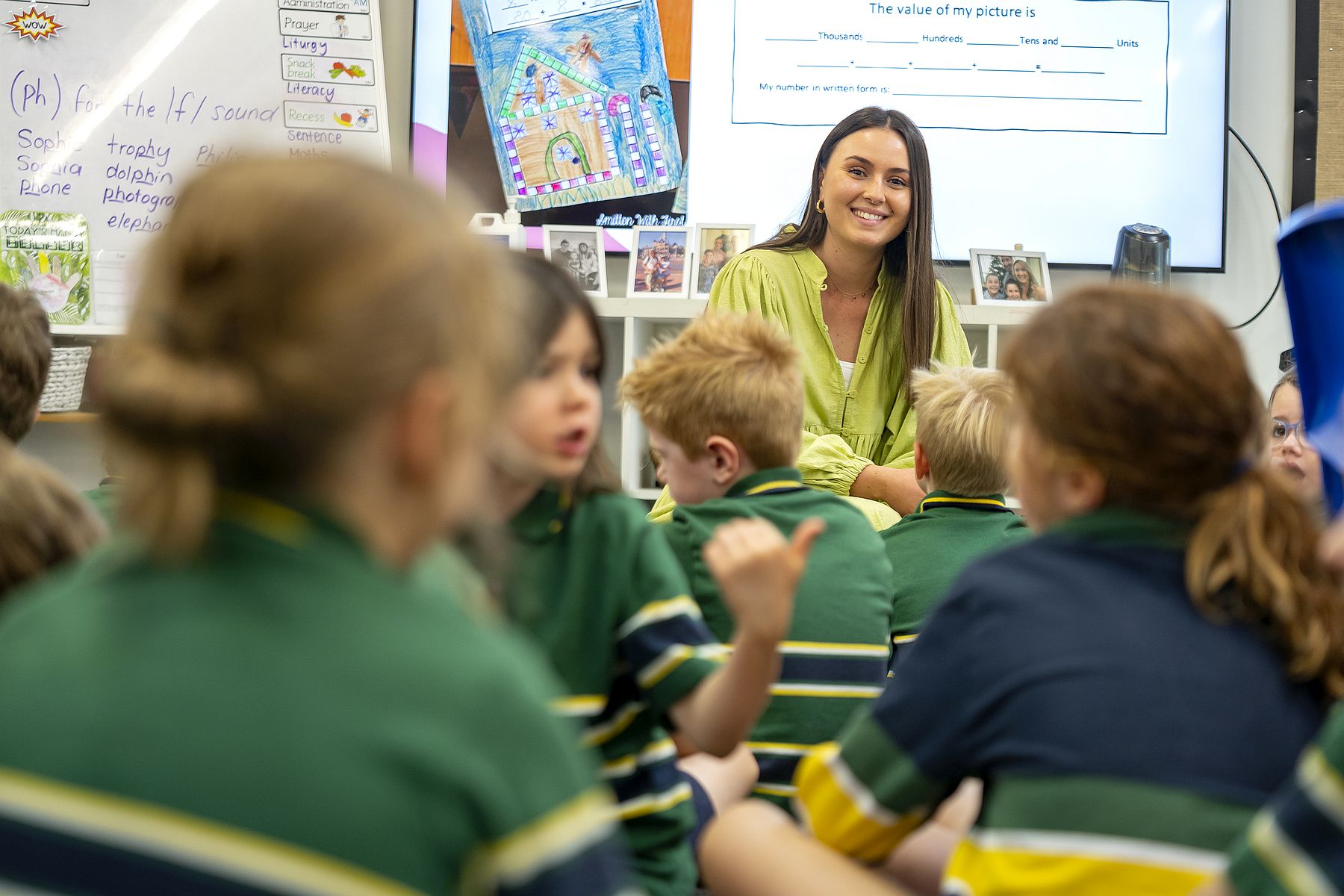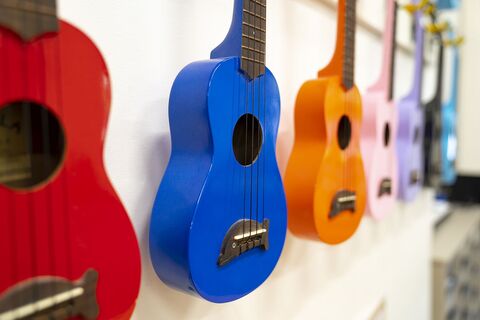
Along with our curriculum based subjects listed below, at St Catherine's nature play is intrinsic to our school culture and values. Students have access to an abundance of space, nature play areas and materials enabling them to explore, construct and play with natural objects.
Our staff are committed to immersing students in outdoor learning experiences, along with applying the Australian Curriculum to develop learning programs that explore and utilise our outdoor spaces.
It includes listening, reading, viewing, speaking and writing. Literacy is the ability to understand and to use language in appropriate spoken, written and visual forms for different contexts, purposes and audiences.
Students engage in activities that support their growing understanding and use of Australian English. In English, students will read, communicate, create, reflect and think critically about a range of fictional, factual, non-print and multimodal texts from diverse cultures. Students will be exposed to a broad range of literature including novels, poetry, plays, films, picture books, short stories and magazines.
The curriculum focus is on developing mathematical proficiencies in understanding, reasoning, fluency and problem solving skills, as well as helping students to develop the ability to creatively apply their understanding in efficient ways.
The Australian Curriculum content strands for Mathematics are Number and Algebra, Measurement and Geometry, and Statistics and Probability.
Our Religious Education is an experience of Church that is authentic and life-giving.
Prayer and Liturgical celebrations are a vibrant part of our faith education. As they develop their beliefs, live and celebrate their faith, your child will develop a strong sense of social awareness and understanding that all human beings are loved by God and therefore are a vital member of the world community.
The Humanities and Social Sciences (HASS) learning area aims to develop in all students a knowledge and appreciation of societies, locally, nationally and globally; of changing environments and systems; and of interactions between environments and societies. Students will also learn about cultural diversity, and the different perspectives people have, and the emerging forms of new knowledge, technologies and demographic patterns in the world.
Through a variety of learning experiences, students will be encouraged to be critical thinkers and to positively and effectively participate in their school, community and wider world. Students are to be given opportunities to develop skills that will enable them to evaluate, make informed decisions, plan, and implement actions, that will be of benefit to them and society.
As educators, students are at the center of everything we do. St. Catherine’s School is embracing this change and delving into the world of STEM education (Science, Technology, Engineering and Mathematics).
Whist teachers have always been teaching these subjects in isolation, we now combine these aspects of learning to allow students to use a range of skills and creativity to help them explore their worlds and answer questions about how and why things work the way they do.
Through innovative design tasks our students are displaying creative and critical thinking skills in tackling real world problems. These opportunities are allowing our students to engage and make positive connections.

The Visual Arts Program allows students to explore their ideas through a variety of art forms, developing experience in the areas of drawing, painting, sculpture, collage, textiles, puppetry, construction, mixed media, poster and theatre art.
Students have the opportunity to explore their own artistic choices while being exposed to a variety of artworks and techniques from artists and other cultures both past and present. Students are also encouraged to critically reflect and respond to art works. They have opportunities to share their art, become involved in art competitions and contribute to school celebrations such as liturgies, assemblies, art displays, Book Week, and the school Art Exhibition.
The Visual Arts Program is part of the integrated school curriculum and makes links with other subject areas such as the Religion, HASS, Science and Literacy Programs.
At St Catherine’s we are well known in the community for our wonderful and varied Music Program. The students are exposed to many musical experiences through singing, listening, playing, moving, creating, performing, reflecting and enjoying. Students are also encouraged to perform for a variety of audiences, beginning with class performances and leading to large performances to the greater community. The provision of live performances as a feature of the program greatly enhances the musical experience. Every two years we have a school musical which is held at the Stirling Theatre.
At St Catherine’s our teachers are experimenting with a range of resources to engage the students in Digital Technologies. We have built a Green Screen Room, formally known as “The Nest” which situates in our “Treehouse” Library. This room is essentially used to store our many resources and allow students to engage in Green Screen recording and filming manipulation.
Our extensive list of technology resources include a Green Screen, 3D printer, Bee Bot Robots, Ozo Bot Robots, iPads for our Junior Primary students, 1-1 laptops for Year 3 and Year 4 students and take home 1-1 devices for our Year 5 and Year 6 students.
At St Catherine’s we are committed to educating children using a range of programs and resources to help them become informed digital citizens of the world.
At St Catherine’s all students have the opportunity to learn Italian and experience one of the oldest cultures in the world. Throughout the year our students are able to immerse themselves in the Italian culture through a range of events and activities such as the Carnevale Parade and more.
At St Catherine's our students participate in a range of sporting activities. Not only is sport important for the health benefits but it also helps our students to further develop physical skills such as balance and coordination, build confidence, connect with their peers and participate in team work.